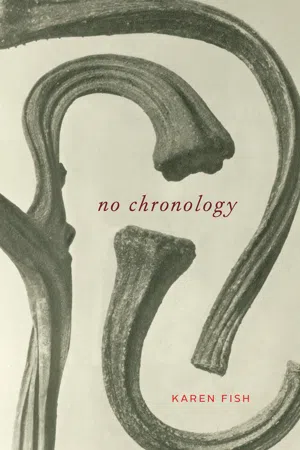I knew nothing about anything: school, dreams, tornados,
strangers, smoke-filled bars, silent, oblivious mothers,
the teenage girls across the street, swaying and sashaying
through the late afternoons with transistor radios,
leaning in, in through rolled-down windows of the parked cars
of visiting boys. I worried in my not-knowing of iron lungs,
bursting appendix, accidental curse words,
sudden illness, all manners of medical procedures,
the gas chamber, the French Kiss. I knew nothing
about majorettes, although I tossed a baton in the warm
afternoon air. I worried about being accused of a crime
I didn’t commit, switched evidence.
It was a suburban neighborhood of abrupt boys
running, stopwatches, athletic accidents, stitches,
snuck cigarettes, stashed girlie magazines, pogo sticks,
headlocks, handlebars to fall from. Bikes to balance on
the back of while the rider rode standing. I knew nothing
about how any of it worked, paychecks, much less wills?
I thought if a man and woman slept back to back,
that produced a baby.
So I worried about bunking up with my brother on vacations.
I worried we’d somehow without our knowing
be some taboo bride and groom. I thought sex might involve
the belly button, no—maybe, maybe—you drank something,
a guy’s urine? My not-knowing showed itself walking to school—
when girls from blocks over would stop for me, remind me,
you know nothing.
I knew nothing about the origin of the creek,
what to do forgotten at the frozen pond,
evidenced by my walking home
two miles in my ice skates,
only to get in trouble for dulling the blades.
I knew nothing about traveling fathers, sad oblivious
mothers, wasp nests in sheds, how to pay attention,
little experiments with fire, how to inhale, why,
why people moved, were quiet or not,
pleased or explosive, math, foreign languages, good
and evil, cause and effect. It all always seemed so arbitrary.
I jumped from the high bars, and my knee hit my chin,
and my teeth went through my tongue.
Like time-lapse photography, I was healed in two days.
Bats circled at night when we jumped
from swings in the trees.
Most days we built dams on the outskirts,
moved rocks, rerouted water, made pools, so pleased with
the splicing, forking, all the effort and strategy, sliding
eventually into sleep like otters off glossy rocks.
The Russians were racing us to the moon.
Tangled in blankets, I fell out of bed and broke
my collarbone—tangled in blankets,
I screamed myself awake from dreams immediately forgotten
to watch Late-Night with my father smoking and drinking in the living room.
I knew nothing about bras, thought breasts conical
and hard like those of statues.
I didn’t know how to do reading problems,
simple distance and time, calculate—join the girl scouts,
get beyond a simple stitch, match plaids in sewing class.
I didn’t know about Saturdays when my father would use a haircut
as his excuse to swing by a bar before noon;
I just knew I’d end up there in that basement bar
downtown again. My brother singing while I did the twist
in my plaid wool skirt to twist later on the stool
with my Shirley Temple to twist dutifully
into the house sideways shimmying past my mother.
I carried a bag from the hardware store. As if
that was why we went out!
He pretended he needed a few nails,
handful of odd screws, maybe a can of turpentine.
I’d slide through the small space first—between my mother
holding the door and the doorjamb.
My mother’s full lips a hard line.
Coming over the lawn,
my father and brother laughing.
Back to the elderly relatives our father took us—
Betty Wherry, retired assistant to Senator Smith,
who lived for years in DC, then with her ancient blind mother
at the beach—Uncle Paul and Aunt Minnie, childless in decorum,
insisting we dress for breakfast, had run a travel agency
in Boston for the wealthy when the Victorian trip meant
seeing the world—worldwide arrangements—
Paris, Egypt, Rome, and Hong Kong.
My brother and I, quiet, were afforded freedoms, silent
in our browsing—closets, bedrooms, the shelves beside the fireplace
with museum quality artifacts to indicate a past—having been somewhere.
Always cocktail hour somehow—a cocktail hour
that sailed surely right over dusk, dinner was just crackers
topped with the cursive of Cheez Whiz.
Silent, in my respectful good behavior, I paid attention—
the blind look that indicated elderly listening—the thin braceleted arms
parceling out the peanuts, refilling the glass companionably
with the warm ginger ale—the speckled hands—the occasional Band-Aid—
contusions purple-pretty under the thin skin—the speckled necks—
the birdie ankles—the eyeglasses and the canes.
How could one live on the coast and not go in?
Why—why . . . the beach but not the beach?
The surf too rough to chance—the uneven bottom—
invisible riptide.
Eventually standing up to my narrow hips in soupy clots of seaweed,
stomach slapped by each impossibly bitter wave, I knew—
I knew my body—knew my body would surely
never, never be theirs.
